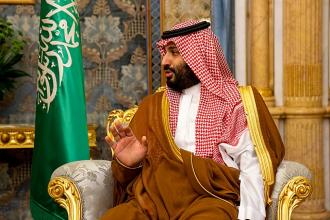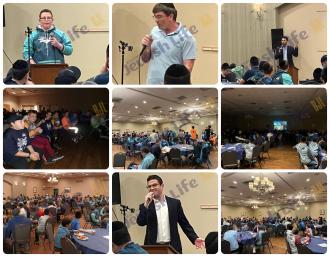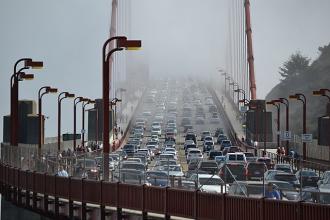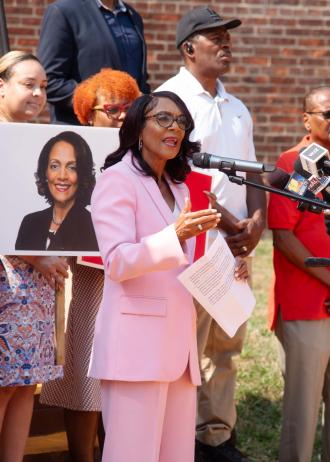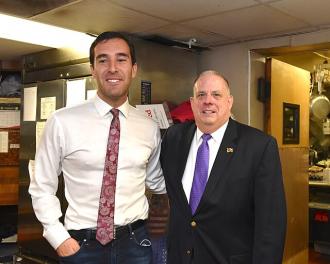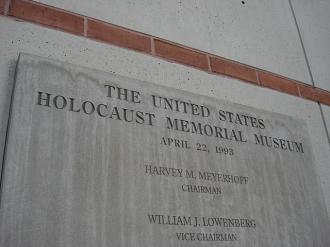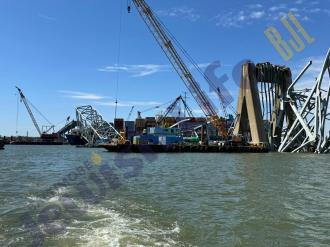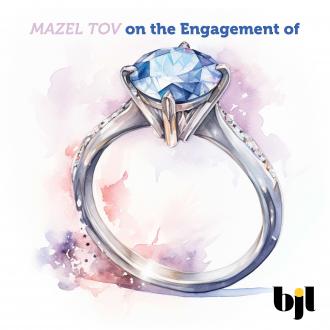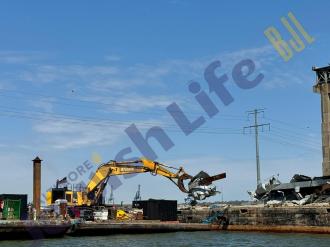Republicans sounded a celebratory note as Democrats' House impeachment inquiry began wrapping up another day of public hearings on Tuesday evening, saying the day's witnesses had served only to repeatedly highlight fundamental problems in the case against President Trump.
“Did anyone ever ask you to bribe or extort anyone at any time during your time in the White House?" House Intelligence Committee ranking member Devin Nunes, R-Calif., asked at one point in Tuesday's hearing.
Former National Security Council aide Tim Morrison: "No."
U.S. Special Representative for Ukraine Kurt Volker: “No."
Later, Rep. Elise Stefanik, R-N.Y., hit the same notes in asking the witnesses about Trump's fateful July 25 call with Ukraine's leader: "Mr. Morrison, you were on that call, and there was no quid pro quo, correct? No bribery? No extortion?"
"Correct," Morrison replied in response to each question.
"And Ambassador Volker, I presume you got a readout of the call. ... Was there any reference to withholding aid? Any reference to bribery? Any reference to quid pro quo? Any reference to extortion?"
"No, there was not," Volker replied, again and again.
The answers underscored a problem facing House Democrats as their impeachment inquiry continues into its second week of public hearings: As more witnesses testify, the more soundbites emerge that may help Republicans and the Trump campaign argue that the proceedings are politically motivated theater, long in the works and foreshadowed openly by Democrats for months, if not years.
Morrison, in another key moment, testified Tuesday afternoon that he understood the transcript of Trump's call Ukraine's leader wound up on a highly secured and classified computer system due to an "administrative error" -- not, as Democrats have alleged, because the president wanted to hide his conversation.
And Volker testified repeatedly that he never received any indications at all that there was an improper quid pro quo with Ukraine, in which the Trump administration allegedly sought a probe of the Bidens in exchange for military aid.
The two witnesses undercut Democrats' poll-tested claims of White House "bribery" and a cover-up, but also raised new questions concerning the administration's use of the little-discussed codeword-level system that ordinarily holds sensitive national security information. In September, a senior Trump administration official acknowledged that White House lawyers directed moving the transcript of the call to the secure system, noting that several of Trump's previous phone calls with foreign leaders had leaked to the media.
FLASHBACK: LEAK OF VERBATIM TRUMP CALL WITH AUSTRALIA LEADER PROMPTS WHITE HOUSE TO INCREASE SECURITY MEASURES
Morrison had previously testified behind closed doors that senior National Security Council (NSC) lawyer John Eisenberg had relayed to him that his secretary accidentally put the transcript in the classified system. Morrison confirmed that Eisenberg wanted to "restrict access" to the transcript, but maintained that the secretary had apparently misinterpreted that instruction.
"It was represented to me that it was a mistake," Morrison testified on Tuesday, saying he tried to "pull up the package in our system" but was prevented from doing so. When he asked why the transcript was unavailable, he testified that he was "informed it had been moved to the higher classification system" at Eisenberg's direction. Then, Eisenberg told Morrison that he "gave no such direction" and that it was an "administrative error," according to Morrison.
Morrison said that to the best of his knowledge, there was no "malicious intent" in the decision to move the transcript to the compartmentalized system, and that all essential personnel retained access to the transcript even after it was moved.
Later in the day, Volker made clear that he had not seen anything to support Democrats' contention that Trump improperly withheld foreign aid to Ukraine as a means of forcing an investigation into Joe and Hunter Biden's dealings in the country.
Instead, Volker suggested -- in a moment that was quickly touted by the Trump campaign on social media -- that Trump's general hesitation to provide foreign aid, especially to corrupt countries, was the prevailing justification for temporarily holding up aid to Ukraine.
Asked about whether he saw any evidence that Trump had committed "bribery" -- the term Democrats have taken to using, after focus groups indicated that it would help them sell impeachment to voters -- Volker was unequivocal that he had not. In fact, Volker said, Trump never linked any probe of Burisma or the Bidens to any military aid.
"I have only seen an allegation of bribery in the last week," Volker said. "I was never involved in anything that I considered to be bribery at all, or extortion."
Volker also said that he didn't initially realize the connection between a Trump-sought investigation of "Burisma" and the Bidens, given that Burisma was seen as a symbol of Ukraine's endemic corruption problem.
Hunter Biden was a board member of the Ukrainian natural gas company Burisma Holdings, which had been under investigation before then-Vice President Joe Biden pressured Ukraine to fire the prosecutor in charge. In his call with Zelensky, Trump suggested the Ukrainians look into the circumstances of the prosecutor's termination, including Joe Biden's boast that he had the prosecutor fired by threatening to withhold $1B in critical aid. (“Biden went around bragging that he stopped the prosecution, so if you can look into it…It sounds horrible to me," Trump said.)
In a lengthy opening statement, Volker said he didn't have any problem with pushing Ukraine to open an investigation into Burisma or corruption.
“It has long been U.S. policy under multiple administrations to urge Ukraine to investigate and fight internal corruption,” Volker said.
In October, Deputy Assistant Secretary of State George Kent similarly testified behind closed doors that he had qualms about Hunter Biden’s lucrative role on the board of Burisma while his father spearheaded Ukraine policy as vice president.
Both Morrison and Volker were involved in the Trump administration’s Ukraine policy at the time of Trump’s momentous summer phone call with Ukrainian President Volodymyr Zelensky in which he suggested a Biden probe.
The testimony followed five hours of testimony earlier in the day with the NSC's Lt. Col. Alexander Vindman and Vice President Pence aide Jennifer Williams.
Volker, who resigned in September after becoming embroiled in the scandal, added that he didn’t “understand” at the time that an investigation of Burisma “was tantamount to investigating Vice President Biden.”
“I saw them as very different – the former being appropriate and unremarkable, the latter being unacceptable,” Volker said. “In retrospect, I should have seen that connection differently, and had I done so, I would have raised my own objections."
Until Tuesday, none of the witnesses who have testified at the public hearings had first-hand knowledge of the president's thinking, which Republicans have used to cast doubt on Democrats' allegations. But Vindman, Williams, and Morrison all listened in on Trump's July 25 phone call with Zelensky. Read more at FOX News






